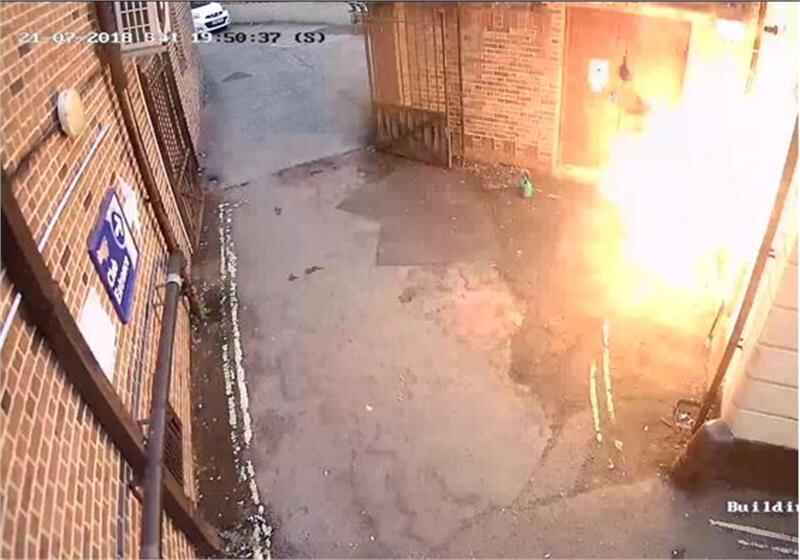CST Blog
Law exists to stop the bigots
31 January 2011
This is a cross-post by Winston Pickett from the Jewish Chronicle
Reports of antisemitism in the UK are reminiscent of a certain vertigo that used to throw Bill Clinton's first presidential campaign into a state of heightened anticipation. Betsy Wright, Clinton's acerbic adviser and veteran lobbyist, dubbed it waiting for the next "bimbo eruption".
What derails the Jewish enterprise in this country may not be as titillating. It is, however, equally vexing. Witness last month's front-page story about a dyspeptic Palestinian speaker at an esteemed British university mouthing antisemitic obscenities, spurring communal leaders to devise an effective response - and leaving the rest of us to wonder how to curb such eruptions in the future.
Small wonder our anxiety level has been ratcheted up several notches. In recent weeks, various think-tank reports show that such phenomena as Abdul Bari-Atwan's talk at LSE of a malevolent "Jewish lobby" and his veiled accusations that Jewish students were collectively responsible for "bombing Gaza" are not only part of an ongoing effluvium of anti-Jewish, anti-Israel invective in academia, but an integral component of a UK campaign most notably on UK campuses.
Last month's report by the Jerusalem-based Reut Institute, revealing Britain to be a "hub" of global deligitimisation efforts that unite Middle East resistance networks with allies on the liberal-left in Europe, was followed by another, by the Jerusalem Centre for Public Affairs (pdf), charging the British academy with becoming a key "mainstreaming agent" in the international effort to deny Israel's right to exist as a Jewish state. This involves routine offers of platforms to Islamist ideologues who demonise and vilify Israel under the banner of academic freedom.
We should not be surprised. In 2005, the All-Party Parliamentary Inquiry Into Antisemitism flagged UK campuses as antisemtic hot spots, while in 2008 the Centre for Social Cohesion painted an equally troubling picture of the deep, ideological roots of anti-Israel activity. Such investigations dovetailed with evidence gathered for more than 20 years by the Community Security Trust in its annual antisemitic incidents reports and its more recent studies of antisemitic discourse.
CST commissioned a legal team to compile a Students Guide to Antisemitism on Campus (pdf) that was made available to Jewish societies and activists throughout the UK. Reacting to the Bari-Atwan affair, the Board of Deputies, the Jewish Leadership Council and the CST made a united complaint to Universities UK as well as Education Minister David Willetts, both of whom have promised to respond.
But are such interventions enough? The Reut Institute and the JCPA reports show that, underlying the current hate on campus, is an amply funded, coherently organised and multi-layered campaign with front and behind-the-scenes activity. Stemming the tide requires an equally sophisticated approach. And here, British Jews may want to take a leaf out of the American Jewish community's book and seriously consider legal intervention.
In the USA, for example, at the end of the last Congress, legislation was introduced to protect Jews - as well as Sikhs, Muslims and other minorities - from discrimination at federally funded secular institutions. The legislation, co-sponsored by the Zionist Organisation of America and written by Kenneth Marcus, legal scholar and former director at the Office for Civil Rights in the US Department of Education, is part of a two-pronged strategy to strengthen legislation that will protect Jewish students from antisemitic harassment on campus.
Would such a strategy work in the UK? While the judicial systems of the two countries pose serious challenges in terms of jurisprudence, according to senior law lecturer Lesley Klaff, of Sheffield Hallam University, the opportunities are ripe.
In a forthcoming article in the Journal for the Study of Antisemitism, Klaff argues that legal remedies for antisemitic hate speech on British campuses are already in place thanks to the new Equality Act which consolidates previous anti-discrimination legislation, imposes an "affirmative equality duty" on all universities from April 2011, and proscribes antisemitic hate speech on campus on the grounds that it constitutes "hostile environment harassment" for Jewish students.
"It's high time we used the laws at our disposal to mount an effective fight-back strategy against campus antisemitism," says Klaff.
Winston Pickett is the former director of the European Institute for the Study of Contemporary Antisemitism

